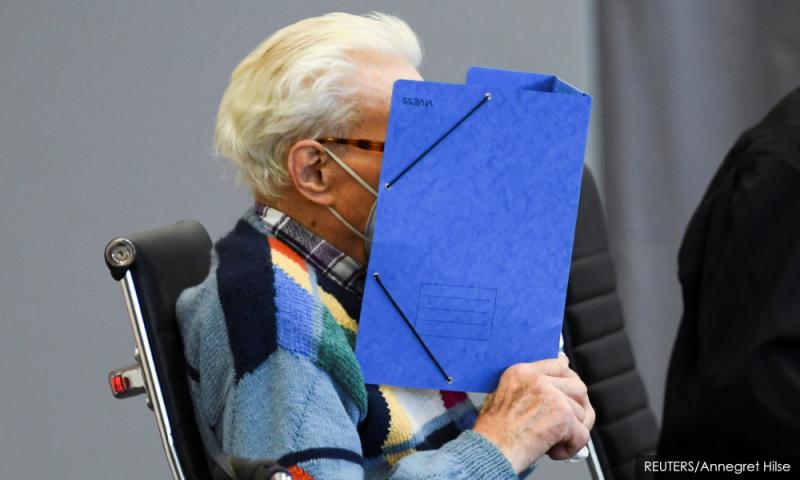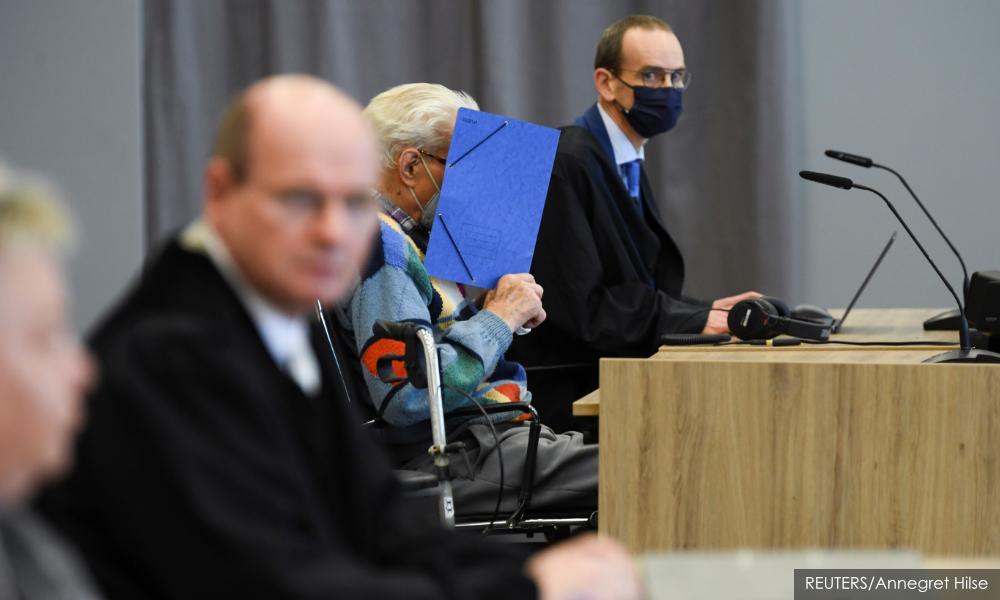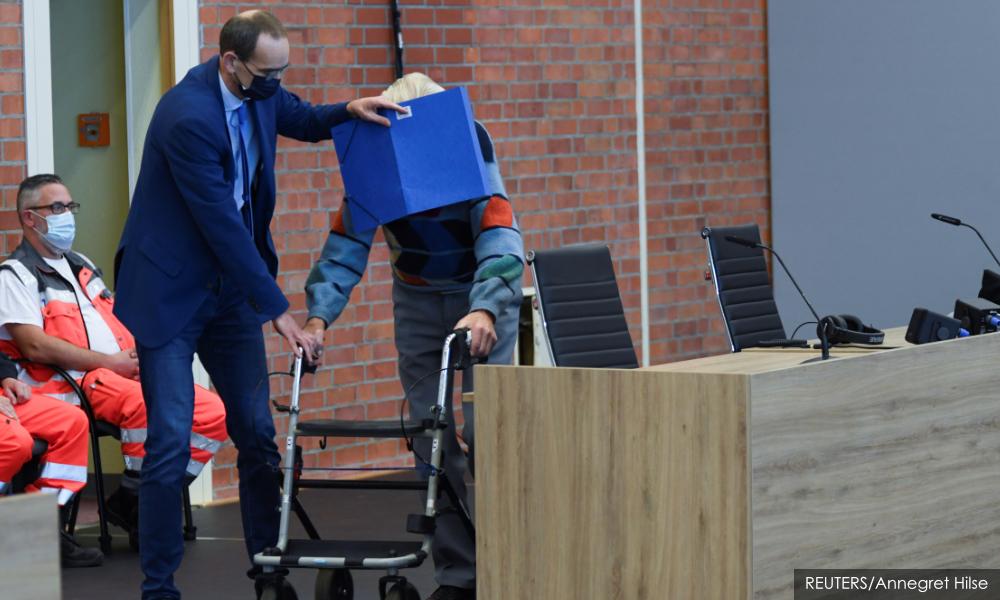Chinese villagers in Batang Kali executed by Scots Guards a la My Lai - till today no justice was rendered
Malaysian victims unsuccessfully petitioned Queen Elizabeth II personally to reopen an inquiry into the massacre in 1993 and in 2004. They tried again in 2008 and failed to receive a reply from the British government until 2011, when the High Court agreed to review the case.
Survivors of the Batang Kali Massacre and relatives of civilians executed by the Scots Guards started a legal battle in 2012 with against the British government over the killings. Although many of the Scots Guards who had committed the massacre were still alive, the families and survivors did not seek criminal prosecutions against individual soldiers.
One of the relatives of the victims who shared her eyewitness account was Lim Ah Yin, whose 11th birthday happened on the same day as the massacre. Her father was one of the civilians executed by the Scots Guards, and she noted that the last time she saw her father was when a Scots Guard was pointing a rifle at him and telling him to shut up. A week after the Scots Guards had shot her father dead, both she and her heavily pregnant mother were made to clean up his corpse which was bloated and covered in flies.
“The bodies were covered in flies. They were bloated and swollen, lying in groups of three or four. Finally I found my father. He had been shot in the chest. That day, December 12th, had been my birthday. My mother cried almost every day. She brought me and my sister up. When the baby was born she gave it away for adoption. She only stopped crying when I married and her granddaughter was born. She was 92 when she died."
In May 2012 the judicial review on the British government's position was held at the High Court of Justice in London. On 4 September 2012, the High Court's judges in London upheld a government decision not to hold a public hearing into the killing. It also ruled that Britain was responsible for the killing in Batang Kali. In its written judgement, it said, "There is evidence that supports a deliberate execution of the 24 civilians at Batang Kali."
In March 2014, the Court of Appeal of England and Wales announced it would make a ruling on whether a public enquiry will be held into the killings. The move was welcomed by families of the plantation workers who had died at Batang Kali. The British government had rejected calls for a public hearing, a decision that was upheld by the High Court in September 2012.
In November 2015, the United Kingdom Supreme Court ruled that the British government was not obliged to hold a public inquiry into the 1940s killing of 24 Malayan villagers by a British army patrol even though it may have been a war crime because the atrocity had occurred too long ago.
***


Ex-SS camp guard, aged 100, on trial for 3,518 deaths
A former SS guard, now 100 years old, hobbled into a German courtroom on a walking frame on Thursday to face charges of helping to send more than 3,000 people to their deaths in a Nazi concentration camp during World War Two.
Prosecutors say Josef S, a member of the Nazi party's paramilitary SS, contributed to the deaths of 3,518 people at the Sachsenhausen concentration camp by regularly standing guard in the watchtower between 1942 and 1945.
Doctors have said that the man, whose full name was not disclosed due to German trial reporting rules, is only partially fit to stand trial: sessions will be limited to just two and a half hours each day.
As the trial began, his lawyer held up a blue folder to conceal his client's face as he was brought into the court in Neuruppin, near Berlin.
Some people interned in Sachsenhausen were murdered with Zyklon-B, the poison gas also used in other extermination camps where millions of Jews were killed in the Holocaust.
Sachsenhausen housed predominantly political prisoners from all over Europe, along with Soviet prisoners of war and some Jews.

A 100-year-old former security guard of the Sachsenhausen concentration camp appears in the courtroom before his trial at the Landgericht Neuruppin court in Brandenburg, Germany, October 7, 2021.
"It's a lot of emotion... I can't really speak," said Antoine Grumbach, 79, before turning abruptly away as he was overcome by tears. His father, a French resistance fighter, died in the camp.
Leon Schwarzbaum, who is 100 years old, sat quietly waiting for the trial to start in the courtroom, showing reporters a photo of him with his parents and uncle, who all died in Auschwitz.
Final prosecutions
Prosecutors accuse Josef S of "contributing to cruel and insidious murders" by aiding in "creating and maintaining life-threatening conditions in the camp."
There has been a spate of charges brought against former concentration camp guards in recent years for World War Two crimes against humanity. Last week, a 96-year-old former camp secretary went on the run the day her trial was to begin, but was caught by police a few hours later.
A 2011 court ruling paved the way for these final prosecutions, stating that even those who contributed indirectly to wartime murders, without pulling a trigger or giving an order, could bear criminal responsibility.

Sachsenhausen, opened in 1936 as one of the earliest Nazi concentration camps, acted as a training camp for SS guards who then went to serve elsewhere, including in Auschwitz and Treblinka. Others killed at Sachsenhausen included Dutch resistance fighters and the Nazis' domestic political opponents.
+++
The Batang Kali massacre took place on 12 December 1948, a much latter date than the Nazi concentration camp atrocities during WWII, yet both the British Supreme Court and the European Court of Human Rights deemed it "happened too long ago" to hold any public inquiry.
In November 2015, the United Kingdom Supreme Court ruled that the British government was not obliged to hold a public inquiry into the 1940s killing of 24 Malayan villagers by a British army patrol even though it may have been a war crime because the atrocity had occurred too long ago.
An appeal to the European Court of Human Rights failed when the case was ruled inadmissible on essentially the same grounds in October 2018.
***

Ex-SS camp guard, aged 100, on trial for 3,518 deaths
A former SS guard, now 100 years old, hobbled into a German courtroom on a walking frame on Thursday to face charges of helping to send more than 3,000 people to their deaths in a Nazi concentration camp during World War Two.
Prosecutors say Josef S, a member of the Nazi party's paramilitary SS, contributed to the deaths of 3,518 people at the Sachsenhausen concentration camp by regularly standing guard in the watchtower between 1942 and 1945.
Doctors have said that the man, whose full name was not disclosed due to German trial reporting rules, is only partially fit to stand trial: sessions will be limited to just two and a half hours each day.
As the trial began, his lawyer held up a blue folder to conceal his client's face as he was brought into the court in Neuruppin, near Berlin.
Some people interned in Sachsenhausen were murdered with Zyklon-B, the poison gas also used in other extermination camps where millions of Jews were killed in the Holocaust.
Sachsenhausen housed predominantly political prisoners from all over Europe, along with Soviet prisoners of war and some Jews.

A 100-year-old former security guard of the Sachsenhausen concentration camp appears in the courtroom before his trial at the Landgericht Neuruppin court in Brandenburg, Germany, October 7, 2021.
"It's a lot of emotion... I can't really speak," said Antoine Grumbach, 79, before turning abruptly away as he was overcome by tears. His father, a French resistance fighter, died in the camp.
Leon Schwarzbaum, who is 100 years old, sat quietly waiting for the trial to start in the courtroom, showing reporters a photo of him with his parents and uncle, who all died in Auschwitz.
Final prosecutions
Prosecutors accuse Josef S of "contributing to cruel and insidious murders" by aiding in "creating and maintaining life-threatening conditions in the camp."
There has been a spate of charges brought against former concentration camp guards in recent years for World War Two crimes against humanity. Last week, a 96-year-old former camp secretary went on the run the day her trial was to begin, but was caught by police a few hours later.
A 2011 court ruling paved the way for these final prosecutions, stating that even those who contributed indirectly to wartime murders, without pulling a trigger or giving an order, could bear criminal responsibility.

Sachsenhausen, opened in 1936 as one of the earliest Nazi concentration camps, acted as a training camp for SS guards who then went to serve elsewhere, including in Auschwitz and Treblinka. Others killed at Sachsenhausen included Dutch resistance fighters and the Nazis' domestic political opponents.
+++
kt notes:
The Batang Kali massacre took place on 12 December 1948, a much latter date than the Nazi concentration camp atrocities during WWII, yet both the British Supreme Court and the European Court of Human Rights deemed it "happened too long ago" to hold any public inquiry.
In the eyes of the British and Europeans, only Jews deserve justice, but not Chinese in Malaya.



Yep, justice for murder has no time limitation. Where is the justice for 40 million in Great Leap Forward and 2 million in Cultural Revolution.
ReplyDeleteBlurred mfer, shows yr conclusive proofs of yr regurgitated farts lah!
DeleteDo substantiate yr lies to upstage the justice for murder. Otherwise u r just croaking an old drmoNcratic chant of zilch substance!
Ooop… just a reminder - don't repeat those cesspool concentrates of unproven wiki & blurred/biased Western press c&p trashes.
It would help if the government was a party to seek justice for the victims of the massacre.
ReplyDeleteBut, since the victims were Chinese (I assume), I doubt if the government would participate in seeking justice for these victims.